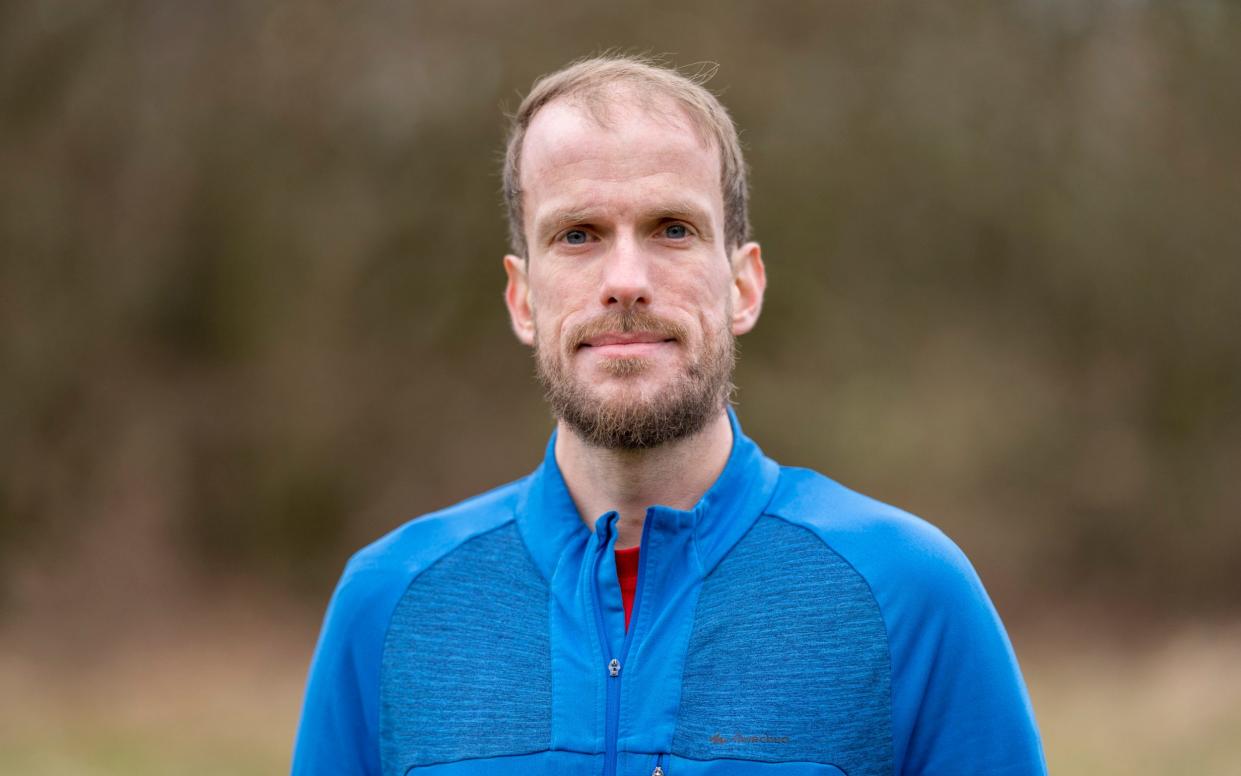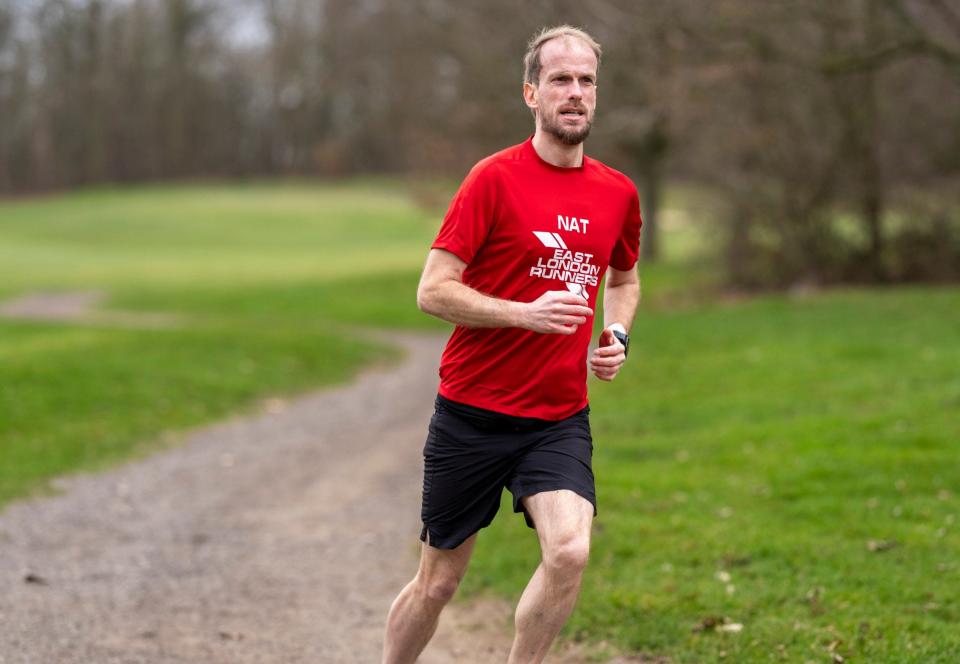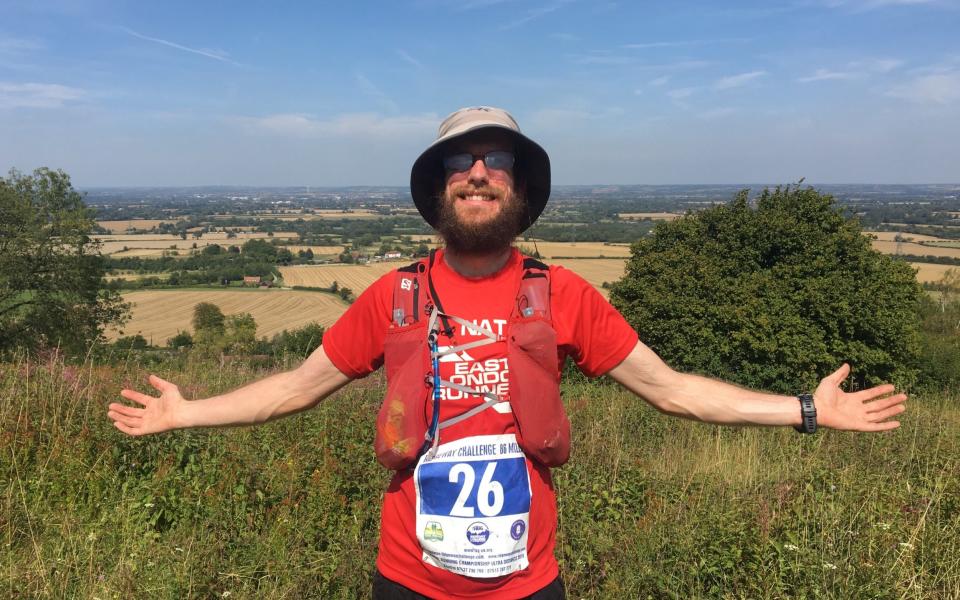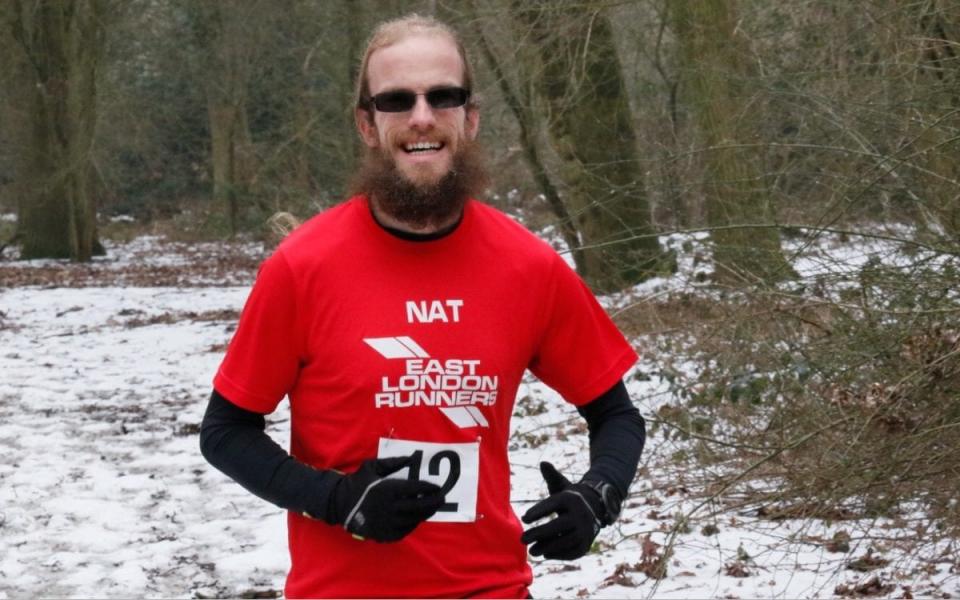‘I attributed my pain to an embarrassing case of trapped wind – now I wish I’d acted sooner’

In 2021 I treated myself to a relaxing summer holiday, which for me meant running the first 160 miles of the Pennine Way in six days.
As an ultra-marathoner I’m used to long distances. I love them, and at the age of 36 should have thousands and thousands of miles ahead of me.
But bowel cancer has now completely humbled me. I write this from bed after my second round of chemotherapy, and just traversing the 12 steps to my sofa feels like running the Pennine Way all over again.
How did this happen to a young man with a monastic lifestyle?
Long before the red-flag warning signs began to appear, I knew something was up, but I did nothing for months, worried that I was just being a hypochondriac. I didn’t want to burden the overstretched public health system.
Now I’ve been diagnosed with stage 4 bowel cancer and, unfortunately, have at best a 10 per cent chance of surviving as far into the future as five years.
It is a reminder that living a clean lifestyle and exercising to extremes does not make you immortal, even though it might feel like that at the time. It doesn’t make you immune to a life-threatening disease like cancer. In fact, the warning signs were there in my running.

Going back a bit, my 2021 was spectacular. Within six months, I’d achieved personal best times at every major distance from 5k to 50 miles, won a race and completed a 102-mile ultramarathon across the Brecon Beacons. Three days after this 35-hour ordeal I raced a muddy five miles cross-country in sandals, as my swollen, blistered feet couldn’t fit into a pair of shoes. This had me named runner of the month for July by my running club, East London Runners.
But as the leaves began to fall off the trees, so did my running performance. I became slower and slower despite routinely putting in 100k training weeks and, by the end of the year, had logged over 3,000 miles.
I was training with a coach and committed to the boring stuff to improve performance, like strength work, stretching, foam rolling, eating ample superfoods and early nights. I’d completely cut out booze, meat, fish, dairy, fat, joy and fun.
But as 2022 dawned, I was still getting slower.
Amateur runners of middling standard tend to organise themselves into an unofficial pecking order, be it in working out how far back to stand from the start line (to let the fastest go ahead) or falling into step with others who go at about the same pace. I’d spent years edging ever closer to the first few starting pens, then months lining up further towards the back older, less fit people.
This dwindling performance was gradual but, with the benefit of hindsight, noticeable. I was more tired for the same effort. I was pulling out of races. I was stressed and exhausted at work, where I am a teacher. I’d lost weight.
And this was all before I needed to take frequent and urgent toilet trips in the middle of long runs, the nagging pain inconvenient and uncomfortable. I blamed the vegan diet, but I was wrong. Blood loss – from the tumours in my colon and which I had yet to notice – led to low iron levels and general fatigue. Even a light jog was hard work.

Now, it’s abundantly clear what was going on, but at the time I was clueless. In March last year I tentatively called an unconcerned locum GP when I had pain so acute I thought I might have appendicitis. I put it down to an embarrassing case of trapped wind and got on with my life because – this is the difficult bit – it went away.
When the pain returned, albeit less severe, a few weeks later, I didn’t want to trouble the NHS. Plus Ofsted were in school, I was just stressed. But over the coming weeks and months, I was pooing more often. Maybe four, six or eight times a day.
Well that came and went too – I was probably fine. By around July, I’d read about the most common bowel cancer indicators in an article by the late Dame Deborah James. She too was a teacher and runner who was diagnosed with bowel cancer in her mid-30s.
Yet I waited until September 1 to contact my GP and, despite listing all my symptoms, was told I was too young to have bowel cancer. I was reluctantly given a blood test to put my mind at ease.
The cancer had likely already spread beyond my colon. But the body is an amazing machine. Despite my debilitating symptoms, I ran a 100-mile race two days before the colonoscopy that would bring about my cancer diagnosis. I was obviously bleeding that morning, but somehow achieved a sub-23-hour time, my best.
I had to fast the day after the race prior to the colonoscopy. But my resting heart rate before the procedure was still my usual 43bpm, because very fit marathon runners have very low heart rates.
The two-week wait for biopsy results and the appointment that confirmed my diagnosis was the most terrifying fortnight of my life.

In total it was 15 weeks of tests, scans and consultations before I underwent my first round of chemotherapy. During that time my prognosis changed from survivable to incurable bowel, liver and neck cancer, as further spread was discovered.
I’m going to ask now a very un-British question, one I wished I’d asked myself. How have you been pooing recently? If the answer is “the same as usual, thank you very much”, then you’re probably fine, but keep paying attention because knowing your s--- could literally save your life.
The bowel cancer indicators include “a persistent change in bowel habit” and “blood in the poo”. By midsummer last year, I exhibited both, but at the time, I felt unsure. Because reputable sources like the NHS website don’t go into detail; bowel habits change in all sorts of ways.
If you strain to produce small quantities of faecal matter and need to do so frequently, consider at least calling 111. If you look into the toilet bowl to discover narrow, thin stools the width of a pencil, consult your physician. If your stool is ridged to the point that it resembles a churro, that is a problem. And if there is the faintest tinge of reddish brown, brownish red or black in the toilet or on the paper, then please make an appointment.
I’ll never know if putting my hand up back in March 2022 would have made much of a difference to my now all-but-certain fate. But I’m going to make it my short life’s work to continue talking about it in the hope that just one person catches this horrendous disease early enough to save their own life, because I could have, and didn’t.
For more information see: bowelcanceruk.org.uk
To follow Nathaniel’s cancer journey, you can visit his blog: nathanielscancerchronicle.site/


